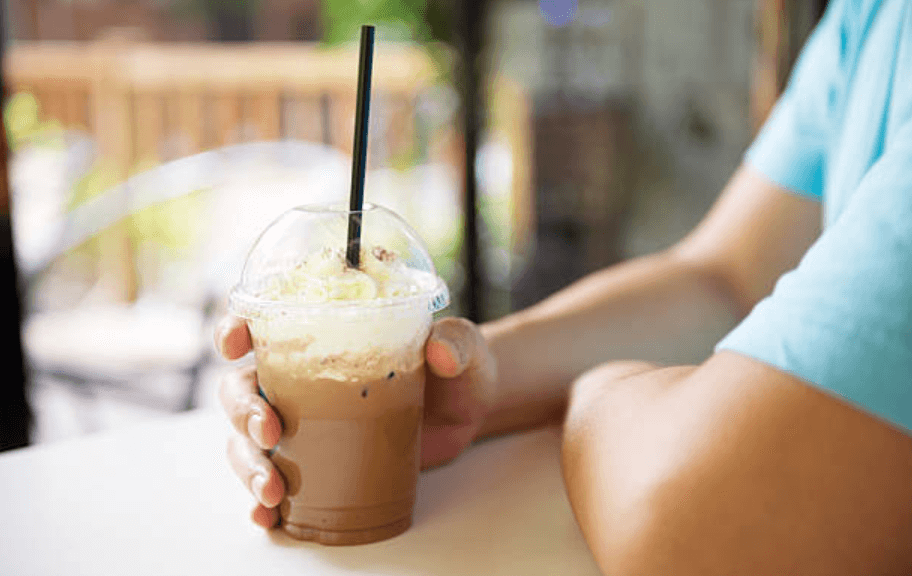How to Choose the Best Straw for Drinking Coffee

Coffee is more than just a drink—it’s a daily ritual, a moment of comfort, and for many, an essential part of their morning routine. While most people focus on the beans, brewing methods, and cups, the type of straw used can also make a difference, especially if you’re eco-conscious or enjoy iced coffee beverages. If you want to learn more about choosing the best straw for drinking coffee, this guide will walk you through eco-friendly options, their benefits, and how to make the right choice for your needs.
Why Choosing the Right Coffee Straw Matters
Many coffee lovers overlook the impact of disposable plastic straws. Single-use plastics contribute significantly to pollution, taking hundreds of years to decompose and often ending up in oceans and landfills. Switching to eco-friendly alternatives, such as bamboo, wheat straw, or paper straws, not only reduces environmental damage but also enhances your overall coffee experience.
Using sustainable straws aligns with a growing movement toward responsible consumption and can even improve the taste and safety of your drinks, as some plastics may release harmful chemicals when exposed to hot liquids.
See also: Lifestyle Choices and Their Impact on Long-Term Health
Popular Eco-Friendly Straws for Coffee
There are several options when it comes to sustainable straws. Each has its pros and cons depending on your coffee habits and preferences:
1. Bamboo Straws
Bamboo straws are made from natural bamboo plants, which grow quickly and require minimal resources. They are sturdy, reusable, and biodegradable, making them one of the most environmentally responsible choices. Bamboo straws are suitable for both hot and cold drinks and can be washed and reused multiple times.
2. Wheat Straw Straws
Wheat straw straws are made from the leftover stalks of wheat plants, which are typically discarded after harvesting. This gives them an excellent sustainability profile while still being strong and heat-resistant. They are often lightweight, compostable, and perfect for everyday coffee use.
3. Paper Straws
Paper straws are widely available and often biodegradable. They are ideal for single-use situations and provide a safe, chemical-free option for hot or cold beverages. Some high-quality paper straws are coated with natural wax to prevent them from softening too quickly in drinks.
4. Silicone Straws
Silicone straws are flexible, durable, and reusable. They are dishwasher-safe and can be used for both hot and cold drinks. While not biodegradable, silicone lasts a long time, reducing the need for disposable alternatives.
5. Stainless Steel Straws
Stainless steel straws are durable, reusable, and easy to clean. They don’t affect the taste of coffee and are excellent for people who want a long-lasting option. However, they can get hot if used in very hot drinks, so care should be taken.
Key Factors to Consider When Choosing Coffee Straws
When selecting the perfect straw for your coffee, consider these factors:
Material Safety
Ensure the straw is made from non-toxic, BPA-free materials. Bamboo, wheat straw, and high-quality paper straws are generally safe for both hot and cold drinks.
Durability
If you drink coffee frequently, reusable options like bamboo, silicone, or stainless steel may be better investments than single-use paper or wheat straw straws.
Environmental Impact
Eco-friendly straws are a key part of reducing your carbon footprint. Choosing biodegradable or reusable options helps protect the environment.
Ease of Cleaning
Some straws, especially reusable ones, require regular cleaning to maintain hygiene. Consider straws that are dishwasher-safe or come with a cleaning brush.
Comfort and Size
Straws come in different lengths and diameters. For thick iced coffees or smoothies, wider straws may be more comfortable, while standard sizes work well for hot coffee drinks.
Benefits of Eco-Friendly Coffee Straws
Switching to sustainable straws offers several advantages:
Reduces Plastic Waste: Minimizes the environmental damage caused by single-use plastics.
Healthier Choice: Avoids potential exposure to harmful chemicals found in some plastic straws.
Durable and Reusable Options: Products like bamboo and stainless steel straws last for years.
Adds a Natural Touch: Bamboo and wheat straw straws enhance the visual appeal of your coffee.
Tips for Using Coffee Straws Effectively
Store Properly
Keep reusable straws clean and dry between uses to prevent mold or bacteria growth.
Rotate Straws
If using bamboo or wheat straw straws, have multiple on hand so you can rotate them while others are drying or being cleaned.
Clean Thoroughly
Use a straw brush for reusable straws, especially for bamboo or stainless steel, to remove coffee residue and maintain hygiene.
Compost Single-Use Options
Dispose of biodegradable straws like wheat straw or paper in compost bins instead of trash to maximize environmental benefits.
Combine with Eco-Friendly Cups
Pairing sustainable straws with compostable cups or reusable mugs amplifies the positive impact on the environment.
Common Myths About Coffee Straws
Myth 1: Reusable straws are inconvenient
Modern reusable straws are easy to clean, portable, and often come with carrying cases or brushes for convenience.
Myth 2: Eco-friendly straws are expensive
While some options may cost more upfront, they last longer and reduce the need for constant replacements, making them cost-effective over time.
Myth 3: Only cold drinks need straws
Many eco-friendly straws are designed to handle hot beverages like coffee safely, especially bamboo, wheat straw, and silicone options.
Final Thoughts
Choosing the right straw for coffee is a small change that makes a significant difference. From bamboo and wheat straw to paper and stainless steel, there are plenty of eco-friendly options to suit every lifestyle. By opting for sustainable straws, you reduce plastic waste, protect the environment, and enhance your coffee-drinking experience.
For more information and a detailed guide on selecting the perfect straw for your coffee, visit AnzhuCraft. Every small eco-conscious choice helps contribute to a healthier planet and a more sustainable lifestyle.





